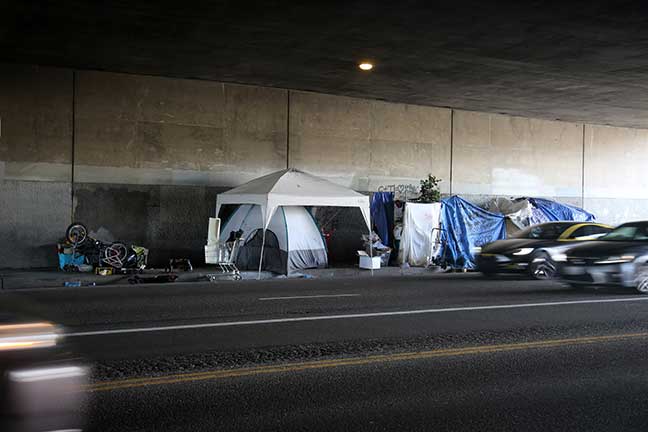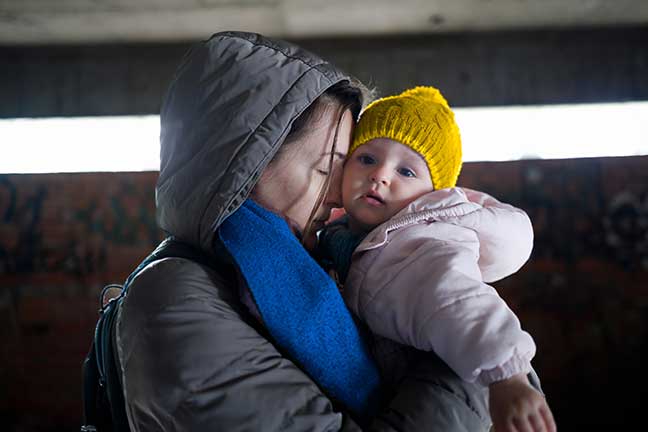Homelessness is a complex issue that affects communities across the United States, and Oklahoma is no exception. According to the National Alliance to End Homelessness, 3,781 people are homeless in the state on a given night.
In recent years, organizations across the state have made efforts to address the challenges faced by these individuals. Continue reading to learn about various Oklahoma homeless assistance programs.
Emergency Shelters
One of the most pressing needs for homeless individuals is a safe and warm place to sleep at night. Emergency crisis shelters play a crucial role in providing emergency housing and resources to those in need. They can provide guests with access to a bed, bathroom, and three square meals a day. These shelters aim to address the immediate needs of community members experiencing homelessness and work together with social services to help them find permanent housing.
Organizations like the Homeless Alliance in Oklahoma City and the Tulsa Day Center for the Homeless offer emergency shelter services to Oklahomans. These shelters also offer hygiene facilities and basic medical care to guests to ensure that they stay healthy while navigating this tough time in their lives. However, emergency shelters typically limit the length of a person’s stay to six months or less. While these facilities are great sources of refuge in an emergency, they can only offer temporary assistance to homeless individuals and their families.

Transitional Housing Programs
While emergency shelters offer quick relief in a pinch, transitional housing programs provide more long-term support to homeless and near-homeless individuals. These programs are meant to serve as bridges to permanent housing solutions and offer intensive support services to community members. Unlike emergency shelters, transitional housing facilities can house guests for periods ranging from a few months to a few years.
Non-profit organizations like the City Rescue Mission in Oklahoma City operate transitional housing programs that aim to address the root causes of homelessness. These programs typically include counseling, job training, and supportive services to help individuals regain stability and independence. Their goal is to provide you with valuable life skills and opportunities to make sure you remain financially stable and off the streets for the foreseeable future.
Permanent Supportive Housing Programs
Permanent supportive housing programs have gained prominence in recent years by providing stable housing and support services to those who need them. These programs offer ongoing assistance to individuals facing homelessness, especially those living with a mental illness, substance abuse issues, or disabilities.
The Mental Health Association Oklahoma is a non-profit organization that strives to reduce homelessness using a ‘Housing First’ model. This approach is based on the idea that a person is best able to work through personal and financial challenges when they have safe and secure housing. The organization also works to protect the affordable housing stock in the state to ensure that tenants are not priced out of their homes and displaced.

Outreach Programs
Many homeless families and individuals struggle to access permanent housing. As a result, they may remain on the streets or constantly move between emergency shelters for extended periods of time. Outreach programs create positive change by connecting with and offering assistance to homeless people in emergency housing facilities and other community spaces.
The Curbside Chronicle in Oklahoma City serves as an example of a street paper that provides employment opportunities for people experiencing homelessness. The program, which is run by the Housing Alliance, was created in 2013 with the goal of empowering men and women to transition out of homelessness.
The Skyline Urban Ministry is another organization in Oklahoma City that engages in outreach. Their mission is to connect the homeless population to resources while treating them with kindness and respect. They partner with the Regional Food Bank of Oklahoma to operate a food resource center and garden program for those without housing in the community.
Meal Programs
Access to regular meals is a fundamental need, and numerous organizations in Oklahoma work to provide food assistance to the homeless. Organizations like Jesus House and the Salvation Army Central Oklahoma Area Command are known for services, including meal programs, for individuals and families experiencing homelessness.
According to their website, Jesus House in Oklahoma City serves meals 365 days a year, from 4 to 5 PM, to anyone who comes on their property, no questions asked. They also run a Food Basket Program that involves creating baskets that contain enough food to feed a family of four for several days.
The Salvation Army of Central Oklahoma, in addition to running a community pantry packed with nutritious food, offers a free community meal every day. These meals are packaged in to-go containers, which means they do not have to be eaten immediately and can be saved for later. Anybody can attend these community meal events, making them a great resource for homeless individuals and others facing food insecurity.
Healthcare Services
Homelessness often exacerbates existing health issues or leads to new ones due to a lack of access to medical care. Healthcare services targeted to the homeless population are crucial. In Oklahoma, programs like the Bedlam Clinic in Tulsa provide free medical care to the homeless for both acute and chronic health conditions. Healing Hands Health Care offers primary healthcare and substance abuse services to individuals without housing. They even offer direct transportation from homeless shelters to their main clinic in Oklahoma City.
There are also resources available for eyecare. The Skyline Urban Ministry in Oklahoma City runs an eye clinic, where volunteer eye doctors routinely provide exams to people without housing. An appointment is required to receive care.
To access dental care, those facing housing insecurity can attend the annual two-day dental clinic hosted by the Oklahoma Mission of Mercy. The location of this clinic changes each year. Individuals can also contact the Oklahoma State Department of Health or Oklahoma Dental Association to learn about other free or low-cost dental care services available across the state.
Legal Aid
Legal issues can become significant obstacles for individuals experiencing homelessness. Organizations like Legal Aid Services of Oklahoma work to combat this by providing legal assistance to the homeless population. This includes help with issues related to housing, employment, and accessing public benefits.

Affordable Phone Service
Having stable cell phone service can be helpful to those struggling to find stable housing. It allows them to directly contact different agencies and organizations to ask about the resources they offer. It also enables communication with family and friends, who can serve as valuable sources of social and emotional support.
If you are struggling with housing instability and could use access to affordable cell phone service, EASY Wireless may be able to help. They help low-income individuals who qualify for government programs like Lifeline and the Affordable Connectivity Program access affordable phone service.
To get started with EASY Wireless, you can apply online through the EASY Wireless website. Or, you can come to one of EASY Wireless’s retail stores, where a customer service agent will help you apply for benefits depending on your unique situation.
There are plenty of Oklahoma homeless assistance programs and services. Addressing homelessness requires more than making sure those in need have immediate emergency housing. People without stable housing also need a source of food, quality healthcare, and a variety of other services as they work to get back on their feet. The support systems outlined in this article aim to address the diverse needs of the homeless population in the Sooner State.


